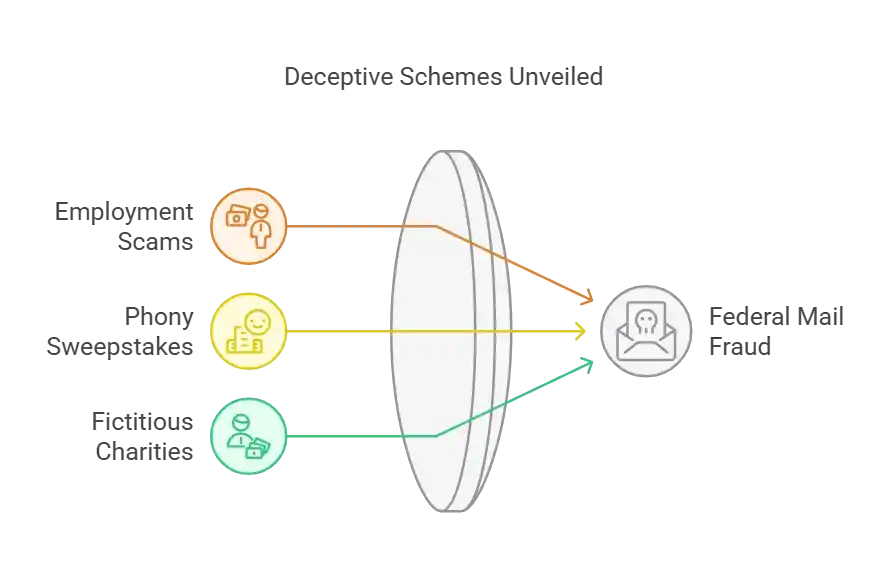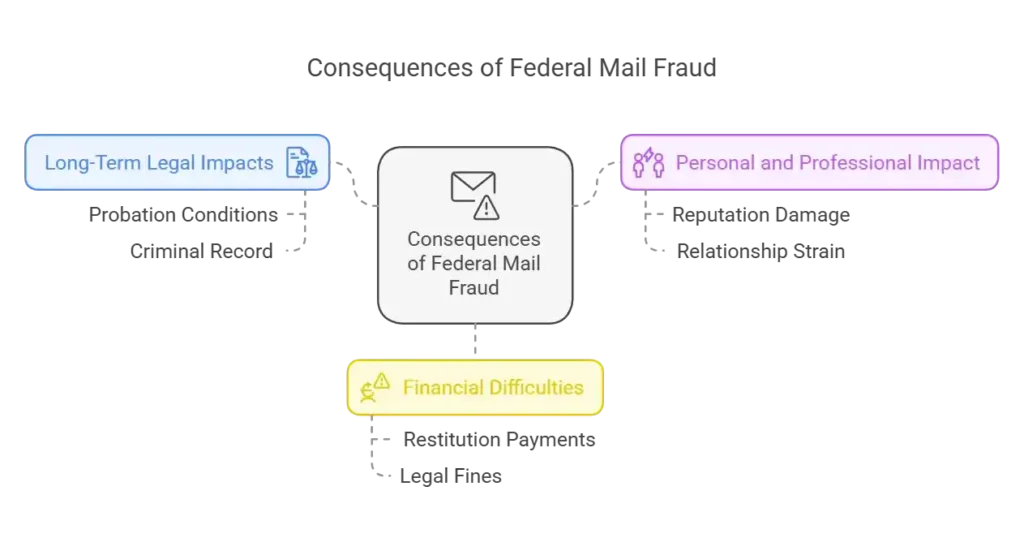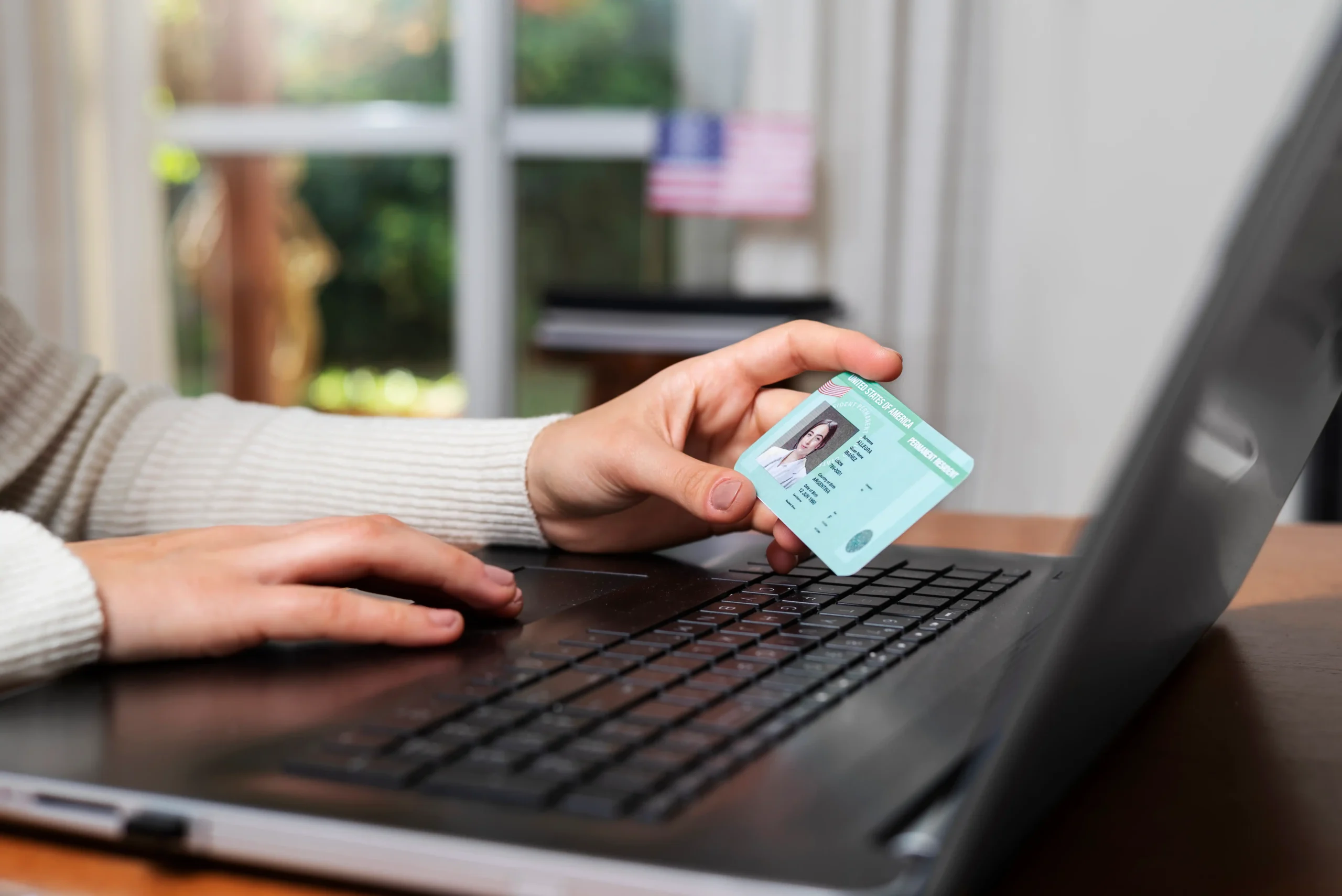While mail fraud might seem like a thing of the past, it is still actively growing. In fact, in 2024, there were over $688 million in suspicious activities related to mail theft and check fraud, according to Financial Crimes Enforcement Network (FinCEN) reports.
This post explains federal mail fraud, its most common forms, and what are the consequences of federal mail fraud. It also shares tips to help you avoid becoming a victim or unknowingly getting involved in a scam.
Need support after a scam? Join our community today.
What is Federal Mail Fraud?
Mail fraud is a federal crime that occurs when someone intentionally designs or participates in a scheme to defraud another person through the use of postal or private interstate carriers such as USPS, FedEx, or UPS. Common examples include:
1. Employment Scams
In this type of scam, scammers typically ask for upfront payment to cover training materials, certification fees, or administrative costs for job placement. Once the payment is made, the promised training, certification, or job opportunity never materializes. This scam frequently targets job seekers on online job boards or through unsolicited emails.
2. Phony Sweepstakes or Prize Promotions
In these scams, victims receive mail, email, or phone notifications informing them that they have won a sweepstakes or prize. However, to claim the prize, they must pay a fee upfront for taxes, processing charges, or handling fees. This scam plays on the excitement and trust of the victims, who believe they are on the verge of receiving a significant reward.
3. Requests for Charitable Donations from Fictitious Organizations
In these scams, scammers create attractive stories about fake charities that need funds for humanitarian efforts, such as aiding victims of natural disasters, supporting military veterans, or helping abandoned pets. They often use official-looking documents, fake websites, and testimonials to bring credibility to their claims.

What are the Consequences of Federal Mail Fraud?
Federal mail fraud is a serious felony with severe penalties that can change depending on the case. For example:
- A conviction for mail fraud can lead to up to 20 years in federal prison.
- If the fraud involves a financial institution or is connected to a federal disaster, the penalties can increase by up to 30 years per offense.
Besides prison time, here are some other major consequences of being convicted of federal mail fraud:
1. Long-Term Legal Impacts
People may go through prolonged periods of supervision, during which they must comply with strict conditions such as regular reporting to a probation officer, submitting to searches, and avoiding any criminal associations. More importantly, the conviction sits on the individual’s criminal record, which can severely impact future employment opportunities.
2. Personal and Professional Impact
The stigma of a federal felony conviction can damage a person’s personal and professional reputation, making it difficult to maintain or seek employment, particularly in industries that require a clean legal record. This stigma can also strain personal relationships and community ties, leading to social isolation and personal difficulties.
3. Financial Difficulties
Convicted persons may also be required to make restitution payments to the victims, which can be financially severe. These payments are in addition to any fines imposed and are meant to compensate the victims for their losses, adding another layer of financial pressure on the convicted person.
How do I know if my email has been hacked? Learn six warning signs that can help you recognize and respond to unauthorized access.

Have questions about dealing with scams? Contact us for support.
How to Prevent Federal Mail Fraud?
Now that you know the consequences of federal mail fraud, it’s important to take steps to prevent committing this type of fraud by mistake. Here are some steps you can take to avoid it:
1. Verify Urgency
When receiving mail that demands immediate action or payment, especially if it’s unexpected, exercise caution. Always take a moment to verify the authenticity of such requests by contacting the organization through official channels, not using the contact information provided in the message.
2. Confirm Authenticity
Before responding to any offers or requests for personal information, always confirm the sender’s authenticity. Contact the organization using verified contact details from a trustworthy source, not the information provided in the suspicious mail.
3. Lock Your Mail
Collect your mail promptly after delivery to prevent theft. If you plan to be away for a while, arrange for a mail hold at your local post office, so your mail stays in a safe place until you can pick it up.
4. Destroy Sensitive Information
To prevent data theft, always tear up or destroy mail containing personal information before throwing it away. This simple step makes it harder for identity scammers to steal and use your personal details from discarded mail.
What Is Clone Phishing? Discover how it works and get a simple guide to protect your email from these deceptive attacks.

Stop Federal Mail Fraud with CDN’s Guidance
Now that you understand the consequences of federal mail fraud, it’s important to recognize that this type of scam is still a serious issue. For example, employment scams—one form of federal mail fraud—have led to record losses in the United States, with more than $220 million reported in just the first half of 2024, according to the FTC.
At Cryptoscam Defense Network (CDN), we know how difficult it can be to spot these schemes, which is why we’ve built a support community dedicated to helping you identify and avoid fraud. Our goal is to provide the guidance and resources you need to stay protected.
We Want to Hear From You!
Fraud recovery is hard, but you don’t have to do it alone. Our community is here to help you share, learn, and protect yourself from future frauds.
Why Join Us?
- Community support: Share your experiences with people who understand.
- Useful resources: Learn from our tools and guides to prevent fraud.
- Safe space: A welcoming place to share your story and receive support.
Find the help you need. Join our Facebook group or contact us directly.
Be a part of the change. Your story matters.
Frequently Asked Questions (FAQs) about the Consequences of Federal Mail Fraud
How Can I Recognize and Report Mail Fraud?
Recognize mail fraud by looking for unsolicited demands for money, personal information, or a sense of suspicious urgency. Report it by contacting the U.S. Postal Inspection Service and filing a complaint online or at your local post office.
What Legal Consequences Do Mail Fraud Perpetrators Face?
Perpetrators of mail fraud can face severe penalties under federal law, including up to 20 years in prison. If the fraud involves a financial institution or is linked to a federal disaster, penalties may increase to 30 years.
How Can I Secure My Mail from Fraud?
Protect your mail by collecting it promptly after delivery. Use a locking mailbox or a P.O. box, and consider electronic statements and bills to reduce physical mail. Always verify the sender before responding to requests received by mail.
What Should I Do If I Suspect I’ve Been a Victim of Mail Fraud?
If you suspect mail fraud, report it immediately to the U.S. Postal Inspection Service. Keep all related mail as evidence, and monitor your financial accounts closely for any unauthorized activity. Consider placing fraud alerts on your credit reports.
Photo via Freepik.







